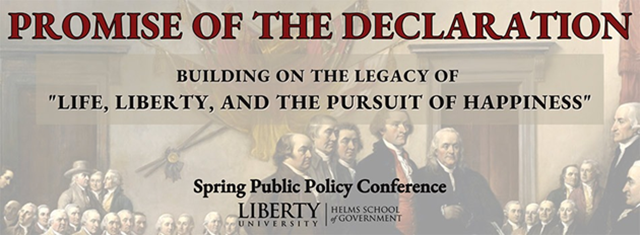Location
Economic Policy & Regulatory Burden
Level of Education
Undergraduate
Secondary Session
Reclaiming Federalism and Self-Government
Keywords
Minimum Wage, Federalism, Fiscal Policy, Economics, Capitalism, States' Rights
Abstract
Minimum wage policy may be the greatest economic policy issue where the common man has a strong opinion. Nearly every person has a view of how minimum wage policy should be enacted, whether it be in raising the federal minimum wage, changing the scope of authority in the federal government, or another policy. However, in discussing any kind of policy, the key details of the policy must be discussed in the framework of both how it would be affected and how it would impact its stakeholders. In this policy analysis, the Iron Triangle of Public Policy – the key executive agency, the key legislative committees, and the key interest groups which affect policy making – is discussed in reference to minimum wage policy. As we discuss the key actors in policy making, we also discuss those who would be heavily impacted by minimum wage policy changes – unions, employers, and workers – and the reasons why they may advocate for or against changes to minimum wage policy. Once we understand the methods and reasons behind the minimum wage, we must discuss the downstream effects of enacting a minimum wage policy, and three different policies are briefly discussed: raising the federal minimum wage, eliminating the federal minimum wage, and taking wage policy away from the federal government and granting it to the state governments.
Included in
Collective Bargaining Commons, Economic Policy Commons, Labor Economics Commons, Public Policy Commons, Unions Commons, Work, Economy and Organizations Commons
America Without a Minimum Wage: Why the Federal Minimum Wage Should Be Abolished
Economic Policy & Regulatory Burden
Minimum wage policy may be the greatest economic policy issue where the common man has a strong opinion. Nearly every person has a view of how minimum wage policy should be enacted, whether it be in raising the federal minimum wage, changing the scope of authority in the federal government, or another policy. However, in discussing any kind of policy, the key details of the policy must be discussed in the framework of both how it would be affected and how it would impact its stakeholders. In this policy analysis, the Iron Triangle of Public Policy – the key executive agency, the key legislative committees, and the key interest groups which affect policy making – is discussed in reference to minimum wage policy. As we discuss the key actors in policy making, we also discuss those who would be heavily impacted by minimum wage policy changes – unions, employers, and workers – and the reasons why they may advocate for or against changes to minimum wage policy. Once we understand the methods and reasons behind the minimum wage, we must discuss the downstream effects of enacting a minimum wage policy, and three different policies are briefly discussed: raising the federal minimum wage, eliminating the federal minimum wage, and taking wage policy away from the federal government and granting it to the state governments.



